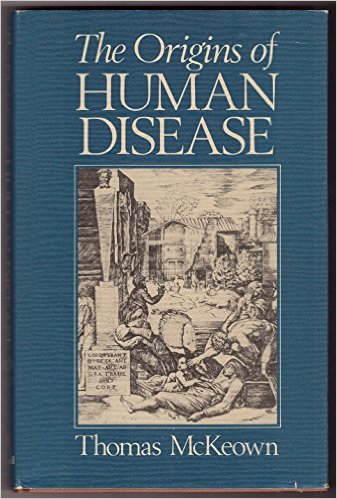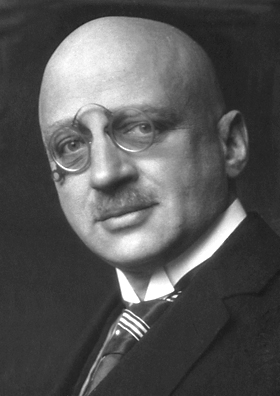|
Population Increase
Population growth is the increase in the number of people in a population or dispersed group. The global population has grown from 1 billion in 1800 to 8.2 billion in 2025. Actual global human population growth amounts to around 70 million annually, or 0.85% per year. As of 2024, The United Nations projects that global population will peak in the mid-2080s at around 10.3 billion. The UN's estimates have decreased strongly in recent years due to sharp declines in global birth rates. Others have challenged many recent population projections as having underestimated population growth. The world human population has been growing since the end of the Black Death, around the year 1350. A mix of technological advancement that improved agricultural productivity and sanitation and medical advancement that reduced mortality increased population growth. In some geographies, this has slowed through the process called the demographic transition, where many nations with high standards of livi ... [...More Info...] [...Related Items...] OR: [Wikipedia] [Google] [Baidu] |
Human Development (economics)
The concept of human development expands upon the notion of economic development to include social, political and even ethical dimensions. Since the mid-twentieth century, international organisations such as the United Nations and the World Bank have adopted human development as a holistic approach to evaluating a country’s progress that considers living conditions, social relations, individual freedoms and political institutions that contribute to freedom and well-being, in addition to standard measures of income growth. The United Nations Development Programme defines human development as "the process of enlarging people's choices", said choices allowing them to "lead a long and healthy life, to be educated, to enjoy a decent standard of living", as well as "political freedom, other guaranteed human rights and various ingredients of self-respect". Thus, human development is about much more than economic growth, which is only a means of enlarging people's choices. Histor ... [...More Info...] [...Related Items...] OR: [Wikipedia] [Google] [Baidu] |
Thomas McKeown (physician)
Thomas McKeown (1912–1988) was a British physician, epidemiologist and historian of medicine. Largely based on demographic data from England and Wales, McKeown argued that the population growth since the late eighteenth century was due to improving economic conditions, i.e. better nutrition, rather than to better hygiene, public health measures, and improved medicine. This became known as the "McKeown thesis". Personal life McKeown was born in Portadown, Northern Ireland and then moved to Vancouver, Canada with his parents. His parents were William McKeown and Mathilda (Duff) McKeown. McKeown graduated in physiology at the University of British Columbia (1932) and obtained his first doctorate at McGill University (1935) before returning across the Atlantic to study as a Rhodes Scholar at Oxford University where he gained his DPhil in 1938. During wartime, he studied medicine at London University where he obtained a Bachelor in Surgery in 1942. In the early 1940s, the Nuffiel ... [...More Info...] [...Related Items...] OR: [Wikipedia] [Google] [Baidu] |
Global Population
In world demographics, the world population is the total number of humans currently alive. It was estimated by the United Nations to have exceeded eight billion in mid-November 2022. It took around 300,000 years of human prehistory and history for the human population to reach a billion and only 218 more years to reach 8 billion. The human population has experienced continuous growth following the Great Famine of 1315–1317 and the end of the Black Death in 1350, when it was nearly 370,000,000. The highest global population growth rates, with increases of over 1.8% per year, occurred between 1955 and 1975, peaking at 2.1% between 1965 and 1970. The growth rate declined to 1.1% between 2015 and 2020 and is projected to decline further in the 21st century. The global population is still increasing, but there is significant uncertainty about its long-term trajectory due to changing fertility and mortality rates. The UN Department of Economics and Social Affairs projects ... [...More Info...] [...Related Items...] OR: [Wikipedia] [Google] [Baidu] |
Population Explosion
Overpopulation or overabundance is a state in which the population of a species is larger than the carrying capacity of its environment. This may be caused by increased birth rates, lowered mortality rates, reduced predation or large scale migration, leading to an overabundant species and other animals in the ecosystem competing for food, space, and resources. The animals in an overpopulated area may then be forced to migrate to areas not typically inhabited, or die off without access to necessary resources. Judgements regarding overpopulation always involve both facts and values. Animals are often judged overpopulated when their numbers cause impacts that people find dangerous, damaging, expensive, or otherwise harmful. Societies may be judged overpopulated when their human numbers cause impacts that degrade ecosystem services, decrease human health and well-being, or crowd other species out of existence. Background In ecology, overpopulation is a concept used primarily in ... [...More Info...] [...Related Items...] OR: [Wikipedia] [Google] [Baidu] |
Fritz Haber
Fritz Jakob Haber (; 9 December 1868 – 29 January 1934) was a German chemist who received the Nobel Prize in Chemistry in 1918 for his invention of the Haber process, a method used in industry to synthesize ammonia from nitrogen gas and hydrogen gas. This invention is important for the large-scale synthesis of fertilizers and Explosive material, explosives. It is estimated that a third of annual global food production uses ammonia from the Haber–Bosch process, and that this food supports nearly half the world's population. For this work, Haber has been called one of the most important scientists and industrial chemists in human history. Haber also, along with Max Born, proposed the Born–Haber cycle as a method for evaluating the lattice energy of an ionic solid. Haber, a known German nationalist, is also considered the "father of chemical warfare" for his years of pioneering work developing and Chlorine#Use as a weapon, weaponizing chlorine and other poisonous gases during ... [...More Info...] [...Related Items...] OR: [Wikipedia] [Google] [Baidu] |
Haber Process
The Haber process, also called the Haber–Bosch process, is the main industrial procedure for the ammonia production, production of ammonia. It converts atmospheric nitrogen (N2) to ammonia (NH3) by a reaction with hydrogen (H2) using finely divided iron metal as a catalyst: \ce \qquad This reaction is exothermic but disfavored in terms of entropy because four equivalents of reactant gases are converted into two equivalents of product gas. As a result, high pressures and temperatures that are not too high are needed to Le_Chatelier's_principle, drive the reaction forward. The German chemists Fritz Haber and Carl Bosch developed the process in the first decade of the 20th century, and its improved efficiency over existing methods such as the Birkeland–Eyde process, Birkeland-Eyde and Frank–Caro process, Frank-Caro processes was a major advancement in the industrial production of ammonia. The Haber process can be combined with steam reforming to produce ammonia with just ... [...More Info...] [...Related Items...] OR: [Wikipedia] [Google] [Baidu] |
History Of Medicine
The history of medicine is both a study of medicine throughout history as well as a multidisciplinary field of study that seeks to explore and understand medical practices, both past and present, throughout human societies. The history of medicine is the study and documentation of the evolution of medical treatments, practices, and knowledge over time. Medical historians often draw from other humanities fields of study including economics, Outline of health sciences, health sciences, sociology, and Political science, politics to better understand the institutions, practices, people, professions, and social systems that have shaped medicine. When a period which predates or lacks written sources regarding medicine, information is instead drawn from archaeology, archaeological sources. This field tracks the evolution of human societies' approach to health, illness, and injury ranging from prehistory to the modern day, the events that shape these approaches, and their impact on pop ... [...More Info...] [...Related Items...] OR: [Wikipedia] [Google] [Baidu] |
Industrial Revolution
The Industrial Revolution, sometimes divided into the First Industrial Revolution and Second Industrial Revolution, was a transitional period of the global economy toward more widespread, efficient and stable manufacturing processes, succeeding the Second Agricultural Revolution. Beginning in Kingdom of Great Britain, Great Britain around 1760, the Industrial Revolution had spread to continental Europe and the United States by about 1840. This transition included going from craft production, hand production methods to machines; new Chemical industry, chemical manufacturing and Puddling (metallurgy), iron production processes; the increasing use of Hydropower, water power and Steam engine, steam power; the development of machine tools; and rise of the mechanisation, mechanised factory system. Output greatly increased, and the result was an unprecedented rise in population and population growth. The textile industry was the first to use modern production methods, and textiles b ... [...More Info...] [...Related Items...] OR: [Wikipedia] [Google] [Baidu] |
Western World
The Western world, also known as the West, primarily refers to various nations and state (polity), states in Western Europe, Northern America, and Australasia; with some debate as to whether those in Eastern Europe and Latin America also constitute the West. The Western world likewise is called the Occident () in contrast to the Eastern world known as the Orient (). Definitions of the "Western world" vary according to context and perspectives; the West is an evolving concept made up of cultural, political, and economic synergy among diverse groups of people, and not a rigid region with fixed borders and members. Some historians contend that a linear development of the West can be traced from Greco-Roman world, Ancient Greece and Rome, while others argue that such a projection constructs a false genealogy. A geographical concept of the West started to take shape in the 4th century CE when Constantine the Great, Constantine, the first Christian Roman emperor, divided the Roman Em ... [...More Info...] [...Related Items...] OR: [Wikipedia] [Google] [Baidu] |
Australian Broadcasting Corporation
The Australian Broadcasting Corporation (ABC) is Australia’s principal public service broadcaster. It is funded primarily by grants from the federal government and is administered by a government-appointed board of directors. The ABC is a publicly-owned statutory organisation that is politically independent and accountable; for example, through its production of annual reports, and is bound by provisions contained within the Public Interest Disclosure Act 2013 and the Public Governance, Performance and Accountability Act 2013, with its charter enshrined in legislation, the ''Australian Broadcasting Corporation Act 1983''. ABC Commercial, a profit-making division of the corporation, also helps generate funding for content provision. The ABC was established as the Australian Broadcasting Commission on 1 July 1932 by an Act of Federal Parliament. It effectively replaced the Australian Broadcasting Company, a private company established in 1924 to provide programming for A ... [...More Info...] [...Related Items...] OR: [Wikipedia] [Google] [Baidu] |
Population Curve
Population is a set of humans or other organisms in a given region or area. Governments conduct a census to quantify the resident population size within a given jurisdiction. The term is also applied to non-human animals, microorganisms, and plants, and has specific uses within such fields as ecology and genetics. Etymology The word ''population'' is derived from the Late Latin ''populatio'' (a people, a multitude), which itself is derived from the Latin word ''populus'' (a people). Use of the term Social sciences In sociology and population geography, population refers to a group of human beings with some predefined feature in common, such as location, race, ethnicity, nationality, or religion. Ecology In ecology, a population is a group of organisms of the same species which inhabit the same geographical area and are capable of interbreeding. The area of a sexual population is the area where interbreeding is possible between any opposite-sex pair within the are ... [...More Info...] [...Related Items...] OR: [Wikipedia] [Google] [Baidu] |









